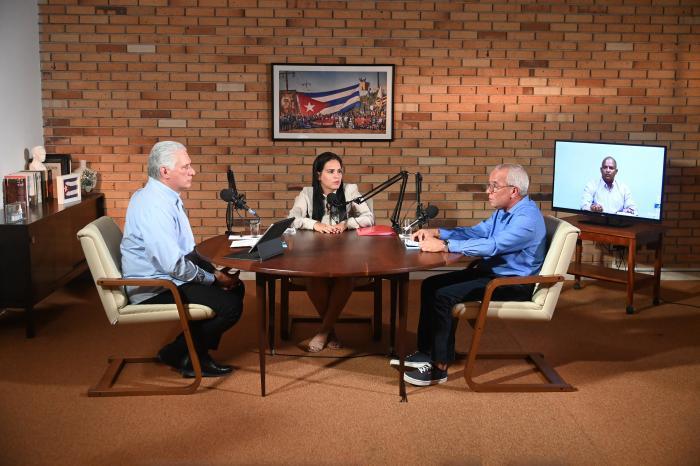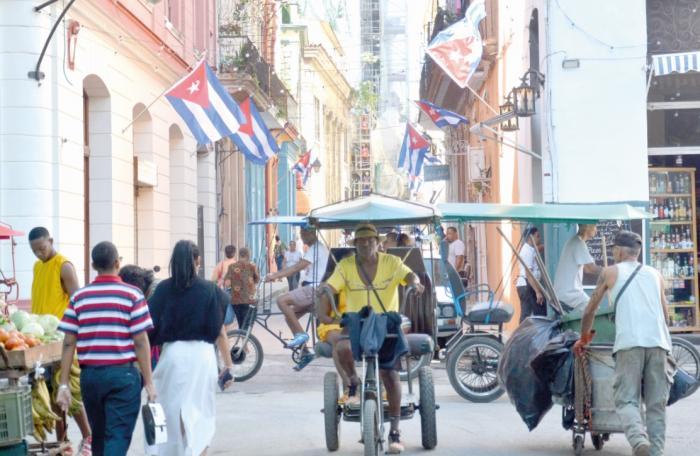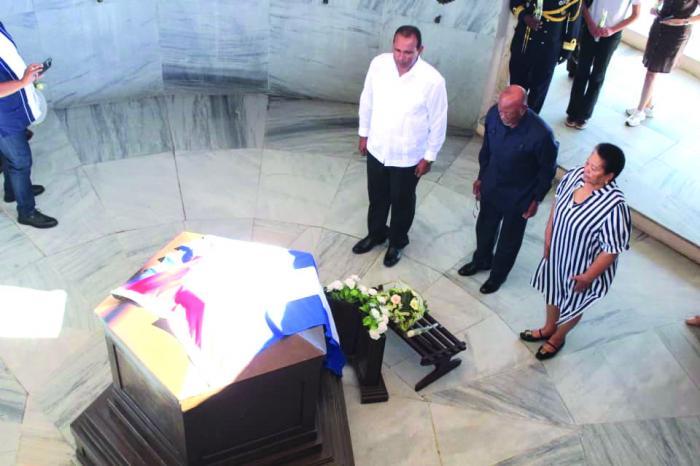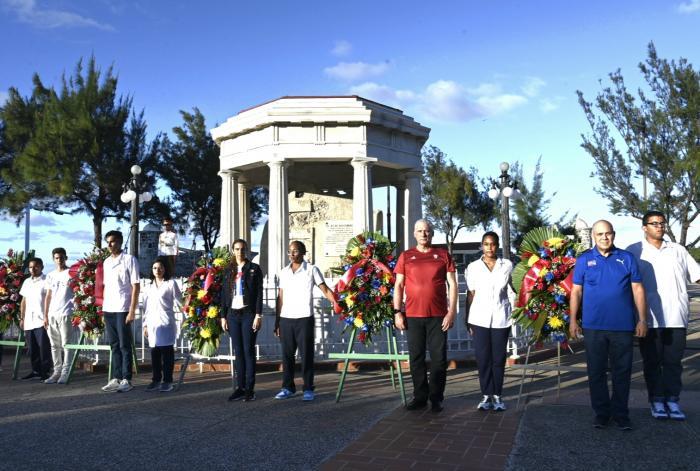


Such considerations of the First Secretary of the Central Committee of the Communist Party and President of the Republic, Miguel Díaz-Canel Bermúdez, focused the dialogue of the fourteenth episode of the podcast From the Presidency, which reflected on the tireless and irreplaceable work of our delegates in neighborhoods and communities.
Once the assemblies of accountability of the delegates to their constituents throughout the national territory have concluded, there are many experiences that have been obtained from them, and not only associated with complaints and criticism, but also with proposals.
The Head of State commented on the complex context in which this process took place, marked by difficulties related to the energy emergency, a couple of cyclones and the impact of strong earthquakes in eastern Cuba, in the first minutes of the program, to then introduce those who accompanied him in this new broadcast.
Ana María Gallardo Caso, president of the Municipal Assembly of Bejucal, in Mayabeque; Pedro Lizardo Garcés Escalona, president of the Rampa popular council, in the capital's Vedado; and Yarobis Álvarez Contreras, delegate of the People's Power in Artemisa, were this time the guests of the President.
Criteria on how the essential relationship between neighbors and government works, from the district to the municipality, in times of crisis, and what else can be done to strengthen it, were shared for almost an hour.
Yarobis spoke to President Díaz-Canel about his commitment to the people and the challenge that being a delegate entails for him. From Artemisa, and via videoconference, he explained about the articulated work that was deployed in his constituency after the passage of Hurricane Rafael.
Those were very complex times, he recalled, in which the lack of electricity -between 12 and 20 days- made the days more difficult and the work more intense, in which it was necessary to look for constant alternatives to accompany the voters. These days have been an unforgettable experience for me, he said.
About her experiences during those complex days, Ana María also commented that before becoming president of the Municipal Assembly, she had managed the financial activity in that territory, which has provided her with better tools to carry out her work.
Ana María also explained how the issue of the 1% of the contributions to the State Budget is approached and how much more could be done with a greater involvement of the voters in the proposals for the use of those resources.
In her opinion, "this participation has been left a little bit behind, because from the moment we approve a participatory budget, the 1% also has to be participatory, and we have to link it more from the popular councils, from the integrated community work, from the constituency, because we have to listen to the people to know what they want to transform, what would be better to invest in."
It is essential that the people give their opinion, that the people give us criteria of what can be done, and what, he stressed, they consider cannot be done.
In this regard, President Díaz-Canel considered that there are three main moments of participation that should be promoted: the first moment in which the neighbors can express to their delegate their concerns, their proposals, their desires, even the priorities for solving a problem; secondly, that the neighbors receive information on what was approved by the Assembly and participate in implementing what was approved; and lastly, popular control.
The question asked by the Head of State to the President of the Rampa People's Council was not half-measures: Do you think that there is an optimal use of the People's Power?
And his interlocutor's answer was: "Honestly, no, President."
"I believe that there is still a lot of potential to be exploited, especially in the interrelation of the organs of the Central Administration of the State, of the administrative entities that converge with the community and of the community as well, to achieve the transformation of their realities and to advance in popular participation."
The guests further commented on the obstacles that prevent them from exercising their functions better, and considered it essential to continue working in the perspective of listening to the people, even when they do not always have the solution to the problems, which demands a more integrated community work.
In this regard, Pedro Garcés stressed that "we still have a long way to go to visualize, raise awareness and strengthen the powers of the People's Council as a structure of government and representative of the people in the district."
In the final moments of the podcast, President Díaz-Canel reflected on two fundamental elements: linkage and participation. If we leaders work linked to the people and participate with the people," he said, "then we are strengthening something that Raúl has asked us to take care of as the apple of our eye, which is unity."
"By linking and participating, we are all defending common projects. Therefore, the challenges are assumed in a common way, and the victories that we achieve through what we do in common, also belong to all of us. And that comes from unity", insisted the president."Especially about the accountability process, he considered that it was assumed throughout the country from an honest and courageous position, because times are very difficult, with many dissatisfactions and very complex moments, and "even so we went to speak honestly to the people, to explain, to ask for participation, to convene to find common solutions to the problems. This is an expression of respect for our democracy, and also of encouragement and nourishment for participation."








